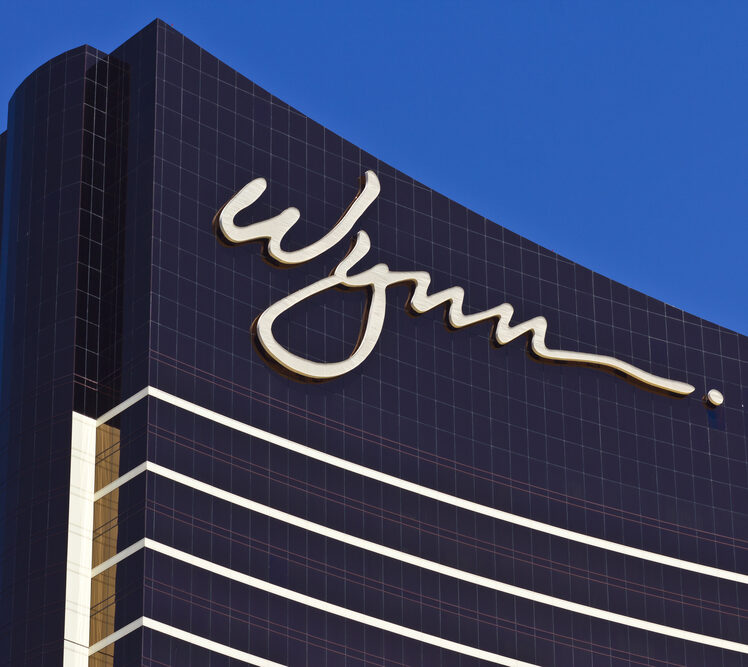Luxury focus drives Wynn’s dominance
LAS VEGAS — While rivals talk about “returning value” to the Strip, Wynn Resorts is quietly delivering it.
After nearly a year of choppy conditions for the city’s top casino operators, Wynn has separated itself from the pack. In the third quarter of 2025, it again outperformed MGM Resorts and Caesars Entertainment, both of which continue to face stagnant or declining revenue. Wynn’s Las Vegas casino revenue grew 11% year-over-year to $161.5 million, putting it 15% ahead of where it stood at this time last year. All major casino metrics rose in the third quarter — table game win up 11%, slot win up 10%, and poker rake up 11% — each of them at least 4% higher year-to-date.
By contrast, MGM’s Las Vegas casino revenue fell 5% for the quarter, with a 6% drop in table game win offsetting modest slot gains. Caesars saw an even steeper 11.5% decline, pulling its year-to-date revenue down 4%. The contrast has translated directly to market performance: Wynn’s stock is up 55% in 2025, while MGM has dipped 2.5% and Caesars has lost 40%.
| Metric | Wynn | MGM | Caesars |
|---|---|---|---|
| Q3 YoY casino revenue | +11% ($161.5M) | -5% | -11.5% |
| Q3 table game win | +11% | -6% | (decline) |
| Q3 slot win | +10% | +3% | (decline) |
| Stock YTD (2025) | +55% | -2.5% | -40% |
The High-Roller Advantage
The core difference, analysts say, lies in who the customers are. Wynn has maintained a laser focus on the luxury segment — the high rollers and repeat elite guests who continue to gamble even as middle-tier consumers pull back. MGM and Caesars, by contrast, operate a broader mix of properties that rely more heavily on general visitation and mass gaming. “High-end gaming is about equity markets, host-to-customer relationships, and the specific service in the building,” Wynn CEO Craig Billings told analysts last week. “It’s not about foot traffic. It’s about who’s walking through the door.”
That approach is paying off in a year when tourism is down and the broader U.S. economy is squeezing average consumers. Inflation, high interest rates, and tariff pressures have weighed on discretionary spending. Yet the wealthiest gamblers — whose fortunes are tied more to market performance than consumer credit — have largely stayed the course. Slot consultant and former casino executive Buddy Frank said Wynn’s dominance is unusual but logical. “Mass volumes and hold percentages tend to even out over time,” he said. “But when a property has a higher share of ‘whales’ — or volatile games like baccarat — a single player can dramatically affect the outcome.”
Wynn’s financial structure also sets it apart. Unlike MGM and Caesars, it owns its Las Vegas properties outright, avoiding the heavy rent obligations that come with sale-leaseback deals. Caesars currently leases 24 casinos and expects to pay roughly $338 million in lease expenses in the fourth quarter alone. MGM, which has sold off all nine of its Las Vegas properties, has paid $571 million in operating leases so far this year and reports $25 billion in total lease liabilities.
Wynn, by contrast, pays no lease costs in the city and still owns an undeveloped 34-acre parcel on the Strip — a strategic reserve of both land and optionality. Wynn’s disciplined focus on its core markets has been another differentiator. The company exited the online gambling business in 2023–24, shutting down WynnBet after years of underperformance. It also withdrew early from the competition for a New York casino license, avoiding the costly and ultimately fruitless process that ensnared MGM and Caesars.
MGM’s late withdrawal led to $93 million in write-offs and a $256 million goodwill impairment charge. Caesars, eliminated earlier in the year, is now under pressure to spin off or sell its digital division despite strong growth there. By keeping its scope narrow, Wynn has reduced exposure to volatile new markets and freed up capital for its most profitable assets — its Las Vegas and Macau resorts.
Our customer isn’t focused on cost alone, but they are unrelenting when it comes to value for their dollar.
A Focused Model for a Changing Strip
The contrast underscores a deeper shift in Las Vegas. The city is no longer solely a volume-driven market; it increasingly rewards precision targeting and brand differentiation. Wynn’s luxury-first model — once seen as niche — now looks like a hedge against a softening economy and an oversupplied middle market.
“Wynn Las Vegas isn’t built for customers on a tight budget,” Billings said. “Our guests aren’t focused on cost alone, but they are unrelenting about value for their dollar.”
That mindset, paired with debt-free real estate and operational discipline, has turned Wynn into the standout performer of 2025. While others are talking about value, Wynn is defining it — one high roller at a time.








